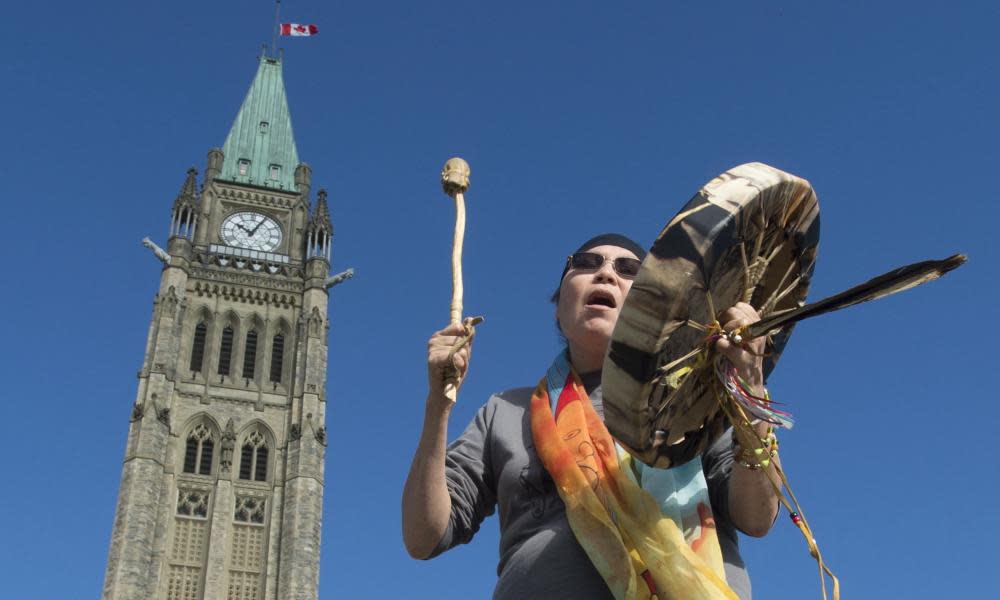Sound of native languages in parliament to mark win for indigenous Canadians

When the Canadian MP Robert-Falcon Ouellette stood in the House of Commons in June 2017 to deliver a speech on the country’s epidemic of violence against indigenous women, few of his colleagues could understand him.
Ouellette spoke in the Cree indigenous language, and – despite a request for English or French interpreters – no simultaneous translation was provided. His speech was only the second time an indigenous language had been officially spoken in the 151-year history of the house.
“I was nervous. I didn’t know if [the speech] was going to be accepted. I didn’t know what the procedures were going to be exactly when I stood up,” said the Winnipeg-based parliamentarian. “I thought they might cut me off.”
But when parliament returns on Monday, things will be different: for the first time, simultaneous translation will accompany any speeches given in indigenous languages.
MPs will have to give two days’ notice to request translation, but for those seeking greater recognition for Canada’s original languages, it marks a significant victory.
“It’s a beautiful moment to see that you can actually change a large institution like this,” said Ouellette. “What it’s going to do in the long term is hopefully allow a grandmother in a Cree community … to turn on the television and watch the great debates of parliament in an indigenous language.”
For indigenous language activists, it is a small point of light in a gloomy landscape: nearly 2 million Canadians identify as indigenous, yet only 260,000 can speak an indigenous language, a government committee found.
And of the 58 distinct indigenous languages spoken throughout the country, most are in danger of disappearing. While Cree, Ojibwe and Inuktitut have a relatively large number of speakers, others are on the brink of extinction: the Sechelt language, historically spoken in what is now British Columbia, has just four native speakers.
That any of Canada’s indigenous languages survived colonization is something of a miracle, said Ryan DeCaire, an assistant professor of indigenous languages at the University of Toronto.
“It’s amazing that our people even still speak the language. [Our grandparents] had to go underground and hide the language to the point where people didn’t know they were speaking it,” said DeCaire, who learned Mohawk, the language of his ancestors, as an adult.
Decades of hostile government policies, including the forcible removal of indigenous children from their families, and a system of residential schools stripped many indigenous peoples of their culture and by extension, their language.
For some in parliament, the new rules are also a powerful reminder of a darker history.
“It will help in a very small way to lift up these languages which have been …consciously or unconsciously, through government action or not … ripped from a people,” said Marc Miller, a member of parliament from Quebec.
After chastising fellow lawmakers for not knowing French, Miller, who is not indigenous, challenged himself to learn Mohawk – an experience he described as “emotional”. In June, he gave a brief speech in Mohawk in the House, probably the first time the language had been spoken by a parliamentarian.
But DeCaire is skeptical the rules change in parliament will help address what he sees as a systemic problem.
“At the end of the day, the people who are going to restore the languages are the ones living in the communities. They’re the ones who have a long-term investment in this in because it’s so intertwined with their identity,” he said.
“People revitalize a language, but language revitalizes a people. When you speak your language, you are more likely to feel self-confident,” he said. “You’re much more likely to have a sense of understanding of who you are … and a sense of understanding and responsibility within a community.”

 Yahoo News
Yahoo News 
